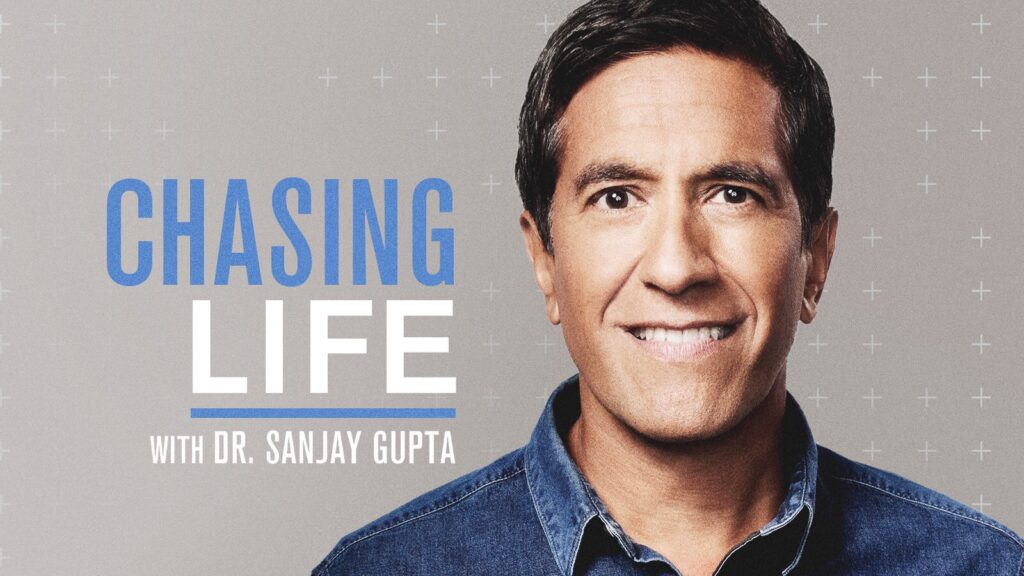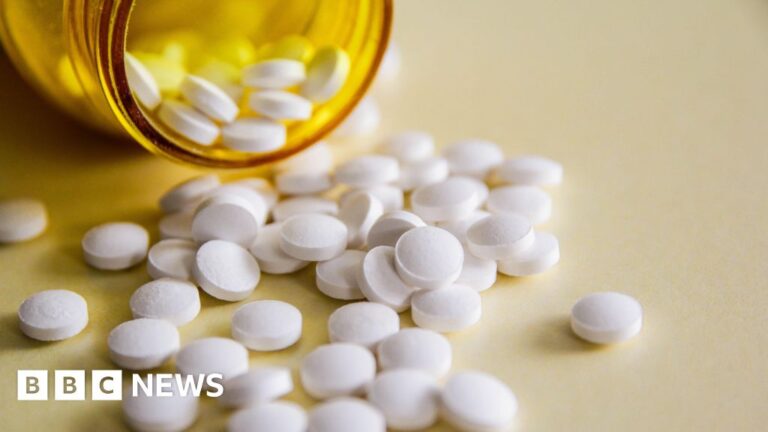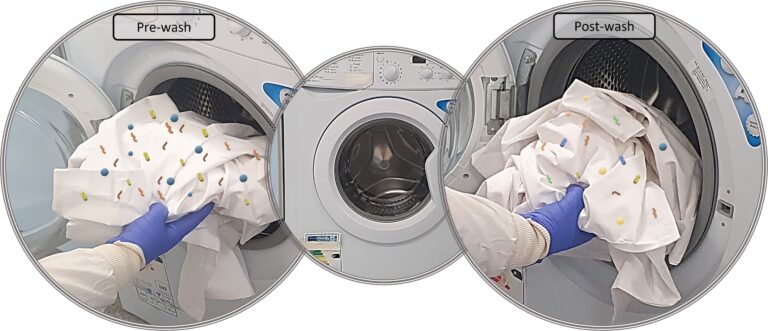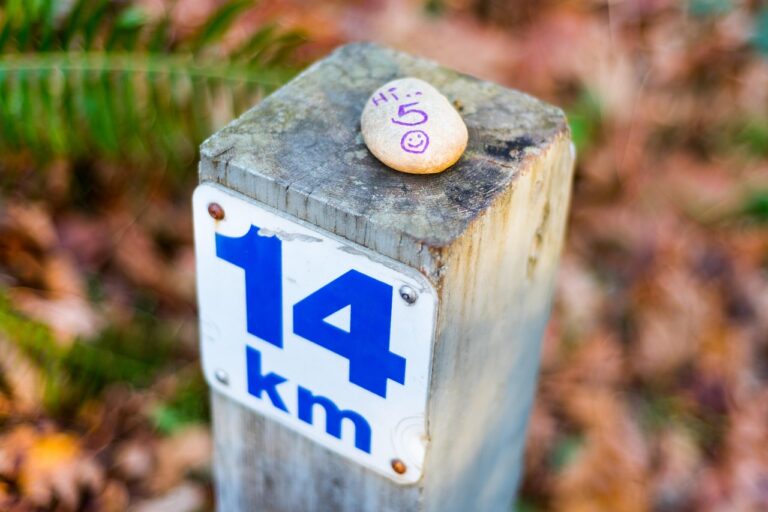
Is There a Natural Equivalent to Ozempic? – Chasing Life with Dr. Sanjay Gupta – Podcast on CNN Audio – CNN
2025-04-22T08:07:53Z
The blockbuster release of GLP-1 drugs for diabetes management and weight loss have left people with a lot of unanswered questions, including this one: can you naturally boost the hormone GLP-1 without pharmaceuticals? That’s where we start today’s Paging Dr.…
Dr. Sanjay Gupta 00:00:53
‘Okay, thank you. First of all, Nina, it sounds like your question specifically is where does the GLP-1 hormone come from and what are the natural ways to boost it? I have to tell you, this is a fascinating topic. I worked on a documentary about this topic. I traveled to Denmark to talk to the scientists who helped develop these drugs. I talked to the scientists at Eli Lilly, who’d also developed these drugs, and I talked a lots and lots of patients. And I’ll tell you I learned a lot. So let’s start with some of the basics. First of all, GLP-1. That’s actually short for glucagon-like peptide. You hear people talking about peptides? This is one of them. Glucagon-like peptide-1, it is probably best described as a post-nutrient hormone. What does that mean? Substances that the human body releases after consuming food, post-nutrient. They do several things. These hormones will stimulate your pancreas to make insulin. They will slow down how quickly food actually moves into your intestines, and they also activate areas in the brain that make you feel full or satiated. And I gotta tell you, as a neuroscientist, it was this last mechanism that I found so fascinating. When you eat, you should feel full. But for some people, turns out they never really feel full, no matter how many calories, no matter much energy they’ve consumed. Instead they have what is now being described as this constant sort of maddening food chatter in their brains. Even as they’re eating a meal, they’re already thinking about their next meal. They never really truly feel satiated. Just imagine what that must be like. And I think it’s part of the reason they continue to eat far more calories than they require. So for them, the GLP-1 medications can quite literally quiet those voices in their head. So what we’re talking about is naturally occurring. We all make these hormones, but some people don’t make enough, and that’s why they don’t feel full. If you want to go back even one step further, glucose or sugar, that is the body’s main source of energy. So during digestion, food is broken down into smaller nutrients, ultimately absorbed via our gut and our circulatory system, our blood, then take those nutrients around the body. Glucose in particular transported from the bloodstream to inside our cells by insulin. Insulin has helped facilitating transferring the glucose inside the cells. So by taking glucose out of the blood stream and into the cells, it is then turned into energy. Now insulin helps keep blood sugar in check in a certain range, but you’re probably thinking of diabetes right now. People who have diabetes, they are more resistant to the effects of insulin, or they can’t make enough insulin, or it’s a combination of both. Either way, the end result is that glucose stays in the blood and cells miss out on their sources of energy. So if you don’t have enough insulin you may have plenty of glucose, plenty of energy in your body, but it’s staying in the blood. It’s not getting into the cells. And that’s where GLP-1 can come into play. GLP-1, as well as a second hormone called GIP, glucose-dependent insulinotropic polypeptide — You don’t need to remember all this — but GLP-1 and GIP are hormones that stimulate the secretion of insulin after food is consumed. Okay, so that helps get the glucose into the cell. I hope that all makes sense so far. So not only does GLP-1 and GIP stimulate your pancreas to make more insulin, they also again slow down how quickly food moves into your intestines. That’s why people feel constipated sometimes taking these medications. They’re not moving the food along as well. That helps them feel full after they eat a meal and helps that food actually become more easily absorbed. And then as I mentioned earlier, they also activate the area in the brain that makes you feel full or satiated. So let me just repeat that. These hormones, GLP-1 and GIP, they will stimulate your pancreas to make more insulin. That allows glucose to get inside the cells. Number two, they slow down how quickly food moves through your intestines. That gives you a sense of fullness. And they also work on the brain, specifically on an area of the brain called the satiety center, the satiation center. That’ll make you feel full after you eat a meal. So the GLP-1 drugs are basically doing this, and they are synthetic versions of a hormone that we should already make. Now, your main question though, was let’s say you don’t wanna take these medications, are there natural ways to boost this hormone? And what I’ll tell you is fiber. I will just throw this word out there, fiber. Most Americans, frankly, most people, at least in the developed world, do not get enough fiber. What we know is that high fiber diets tend to release more natural GLP-1. There’s little doubt that, look, for most people regular exercise and just eating right is gonna be the best strategy for weight loss and overall health. But I gotta say, when I worked on the documentary, I realized that for certain people, no matter how attentive they are to their overall health, no matter how wise they are about their food choices or how much activity they incorporate into their lives, they still gain weight. They still become overweight and obese. And they have that constant maddening food chatter in their brains. So you can create more natural GLP-1 and I think a high fiber diet is probably one of the best ways to do it. In addition to healthy lifestyle choices overall. But you gotta keep in mind that for some people, they just don’t make enough GLP-1, regardless. So I would strongly suggest increasing the fiber in your diet no matter what, because most people simply aren’t getting enough. That should help increase the amount of natural GLP-1. But if you’re somebody who is obese, if you meet the criteria for these medications, maybe they’re an option. For most people, they’re not. But maybe they’re an option for you. You should talk to your doctor about this. You know, working on the documentary for me really made me understand, I think, obesity as a disease. We know diabetes is a disease. You’re not making enough insulin or the insulin you are making is not working well enough. For certain people with obesity, not everybody, but for certain people of obesity, it’s another hormone they don’t have enough of, GLP-1. And as a result, they don’t tell their brains that they feel full after a meal. And for, again, certain people, these medications might provide a good option for people who are just trying to improve their health overall. And as part of doing that, want to increase their GLP-1 levels, think about fiber. Incorporate more fiber into your diet. Now when we come back, we’re going to talk about health misinformation and the best ways to stay informed nowadays. Okay, we’re back, let’s get to our next question, this one from Texas.
Auto-posted from news source






